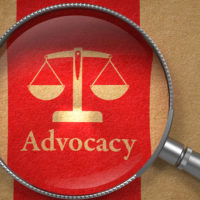Discipline or Abuse? The Fine Line Parents Must Walk When Raising a Child

According to the FIU College of Education Child Abuse Tutorial, there were 50,239 confirmed victims of child abuse in Florida in 2010. With reports of child abuse so common, it begs the question: what exactly is considered child abuse? In 2014, former NFL running back, Adrian Peterson, was accused of abusing his then four-year-old son with a stick, or switch, and was put on trial. Though he asserted over and over again that he had no intention of harming his son, and that he was simply disciplining him as his own father had done to him, the jury was skeptical. After all, his particular form of discipline left open wounds on his son’s legs. The case ended with Peterson accepting a plea deal that reduced his felony child abuse charge to misdemeanor reckless assault, thereby escaping jail time. However, his career as a Minnesota Vikings running back ended because of the incident.
Definition of Child Abuse
The public was torn in Adrian Peterson’s case, with half outraged that he would hit his son and the other half outraged on his behalf. The case brought to surface a flaw in our legal system, that being the blurred line between parental rights and abuse.
In Florida, the law allows for parents to discipline their children as they see fit; however, the statute on the matter does not clearly define the difference between child abuse and legal discipline. According to Florida Statute 827.03, child abuse is defined as the “intentional infliction of physical or mental injury upon a child.” As you can see, this leaves a lot of room for interpretation. Spanking, under this definition, could be considered child abuse, as it is the intentional infliction of physical injury. Furthermore, the statute states that “knowingly abusing a child without causing bodily harm” is a third degree felony. Again, would spanking fall into this category?
In Peterson’s case, had he not been offered a plea deal, he could have been charged with a first degree felony for aggravated child abuse, “abuse [that] is the willful and malicious punishment of a child that causes bodily harm.”
If we take the statute’s provisions at face value, all types of physical discipline are illegal. However, the US is a place in which parents are free to raise their children how they see fit; by making all forms of physical discipline – including spanking – illegal, the law is essentially limiting parenting rights.
As of right now, there is not statute that clearly differentiates abuse from discipline, and so it is up to the judge and jury to make an informed decision on a case-by-case basis. Additionally, it is up to the defendant’s domestic violence defense lawyer to argue against intent and show that the accused acted without malice or willful intention.
Contact a Miami Domestic Violence Defense Lawyer
At The Baez Law Firm, our Miami domestic violence lawyers protect the wrongly accused. If you were charged with child abuse for disciplining your child, you need the help of an aggressive lawyer who will prove lack of malice or harmful intent. Do not risk going to jail for simply raising your child. Call 800-588-BAEZ now to schedule your free consultation.
Resource:
childabuse.fiu.edu/law_statistics.php




















